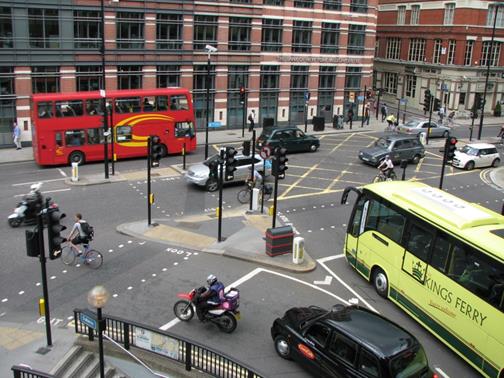ロンドン/英国 ~Brexit negotiations must respond to threats faced by all Europeans~
欧州・CIS
2016年11月11日
Sumitomo Corporation Europe Limited
Graham Holman

In understanding the UK Government's negotiating position on leaving the EU, it is difficult not to return to Theresa May's emphatic slogan, "Brexit means Brexit". The Prime Minister further explained; "There will be no attempts to remain inside the EU, no attempts to re-join it by the back door, and no second referendum. The country voted to leave the European Union, and as prime minister I will make sure that we leave the European Union." Balanced against this is her wish for "a powerful new relationship" with the EU "looking for opportunities". British diplomats have also been reported as attempting to sound-out EU counterparts over the terms and scope of negotiations from the British-interest point of view.
In further understanding how a more detailed scenario may develop, it seems reasonable to start with the main political demands of Leave voters. Even though the vote did not refer to any specific conditions of Brexit, the Government clearly believes that the following are bottom-line requirements:
- that EU law will no longer have supremacy over British law;
- the ability for Parliament to impose controls over the movement of labour from the EU;
- Parliament to decide on the amount of future payments to the EU budget; and
- freedom for Britain to agree its own trade deals.
Underlying these points is the 'inequality gap' and the Leave vote expressing the perception, in Britain at least, that membership of the EU is 'by and for the elite' which is 'done to' ordinary people rather than being something partly created by them. It could also be said that the British people were asked to give their opinion of, and verdict on, the EU's own experiment with globalisation.
When translating this 'wish list' into political and economic reality, however, the difficulties quickly begin to mount up, including apparent contradictions on the British side.
Britain's comparative advantage is recognised to be in 'regulated services' and is a central interest in any continued EU relationship. In direct conflict with Britain 'taking back control', however, this sector requires a regulatory framework that protects market freedoms, including in terms of enforcement, across borders and by definition a degree of voluntarily pooled sovereignty in essential areas such as competition law and state-aid rules.
Further, in order for services, particularly non-tradable, personal services to be freely exchanged, there must at least be a degree of labour mobility. While this 'degree' of freedom could be acceptable to the UK, the united stance of EU counterparts is that the four freedoms are indivisible and are a requirement for access to the single market.
This importance of ongoing coordination over regulations is just as applicable to the continued movement of goods from Britain to the EU. Further in relation to goods, if Britain is to leave both the single market and customs union, the next best solution would appear to be agreeing to keep tariffs on each other's exports at zero or as low as possible across all sectors and avoid the need for physical border checks on the trade in goods. It remains to be seen whether such agreement could be consistent with another 'political demand' of allowing Britain to agree its own trade deals with third countries.
With regard to any contribution to the EU budget, for example as a way of 'buying' single market access or maintaining participation in pan-European scientific and educational programmes, as well as EU regional support funds, these are still proposals subject to complex debate and would require a unanimous vote among the EU27.
It should also be noted that these obstacles are only those apparent from looking at Britain's own list of political demands. Michael Barnier, who will be heading negotiations on behalf of the European Commission, has been given a very different, and narrow, four-point agenda: i) the amount Britain will need to pay its share of continuing EU liabilities, ii) the status of EU nationals in Britain and British nationals in the EU, iii) administrative disengagement, such as EU agencies based in Britain and iv) 'special situations' such as arrangements for Northern Ireland and Gibraltar.
Adding to the burden of negotiations, particularly on the British side, is Article 50 itself which puts the 'leaving country' at the disadvantage of having to sort-out all the terms of leaving, and any of re-engagement, within the two year limit in order to avoid the uncertainty of leaving without any agreements. We also now have a High Court ruling (with an appeal being heard by the Supreme Court in December) that the Government cannot trigger Article 50 without the approval of Parliament.
Having arrived at this point, the next couple of years seem to hold a bleak prospect which has led to numerous predications of a 'hard Brexit' or even a 'dirty Brexit'.

While such predictions are logical and widespread, two further points are worthy of consideration: The British Government should avoid making binary choices, and both British and EU counterparts need to think deeply about the importance of responding to threats that face all Europeans.
It is not an argument to try to rejoin the EU or hold a second referendum to say that British voters have 'moved-on' and developed their understanding of Brexit since June. During the referendum voters had difficulty understanding the technical political and economic issues as well as the guesswork over the permutation of consequences. Confusion was understandable, particularly considering that Britain, an old-established 'Parliamentary Democracy', suddenly became a 'Popular Democracy' in deciding the most important and complex political decision of many peoples' lifetimes.
The abrupt reality of the result, followed by a period of continual scrutiny and analysis, has brought voters to a point where they have at least a better 'feeling for' the practical difficulties of implementing the reality of a 'Leave' vote. In that respect, the British Government should take into account that voters do have the capacity to understand apparently contradictory positions and the ever-evolving task of bringing-out the positive potentials inherent in them. Accordingly, in proactively structuring a proposal to the EU, the Government should also have the confidence not to feel compelled into making binary choices based on a simplification of the political demands, and frustrations, of Leave voters crystalized on June 23rd.
In addition, all European nations understand that the balance of economic and geopolitical power in the world is changing. In order to continue to create value in global society, Brexit must not be allowed to weaken Europe unnecessarily. Neither can Europe avoid the escalation of well-documented threats ranging from human security, climate change, energy security, sanctions policy and spill-over from conflict in the Middle East and North Africa, including migration flows and failing-state vacuums. Uncontrollable shocks from these threats over the next two years will provide overwhelming proof of the importance of a united Europe on many fronts, irrespective of Brexit. Negotiations, which can be controlled, should be conducted with the sense of strength of purpose and urgency necessary to respond to these threats, on behalf of all Europeans.
記事のご利用について:当記事は、住友商事グローバルリサーチ株式会社(以下、「当社」)が信頼できると判断した情報に基づいて作成しており、作成にあたっては細心の注意を払っておりますが、当社及び住友商事グループは、その情報の正確性、完全性、信頼性、安全性等において、いかなる保証もいたしません。当記事は、情報提供を目的として作成されたものであり、投資その他何らかの行動を勧誘するものではありません。また、当記事は筆者の見解に基づき作成されたものであり、当社及び住友商事グループの統一された見解ではありません。当記事の全部または一部を著作権法で認められる範囲を超えて無断で利用することはご遠慮ください。なお、当社は、予告なしに当記事の変更・削除等を行うことがあります。当サイト内の記事のご利用についての詳細は「サイトのご利用について」をご確認ください。
 SCGRランキング
SCGRランキング
- 2025年3月24日(月)
『東洋経済ONLINE』に、米州住友商事会社ワシントン事務所調査部長 渡辺 亮司のコラムが掲載されました。 - 2025年3月19日(水)
一般社団法人企業研究会主催『経営戦略担当幹部交流会議』にて、当社シニアアナリストの石井順也が講演しました。 - 2025年3月17日(月)
オンライン経済メディア『NewsPicks』に、プロピッカーとして当社シニアアナリスト 石井 順也のコメントが先週8本掲載されました。 - 2025年3月17日(月)
日経QUICKニュース社の取材を受け、当社シニアエコノミスト 鈴木 将之のコメントが掲載されました。 - 2025年3月13日(木)
一般社団法人企業研究会主催『これからの経営監査を考える会』にて、長谷川俊明弁護士との対談形式で当社シニアアナリストの石井順也が講演しました。


